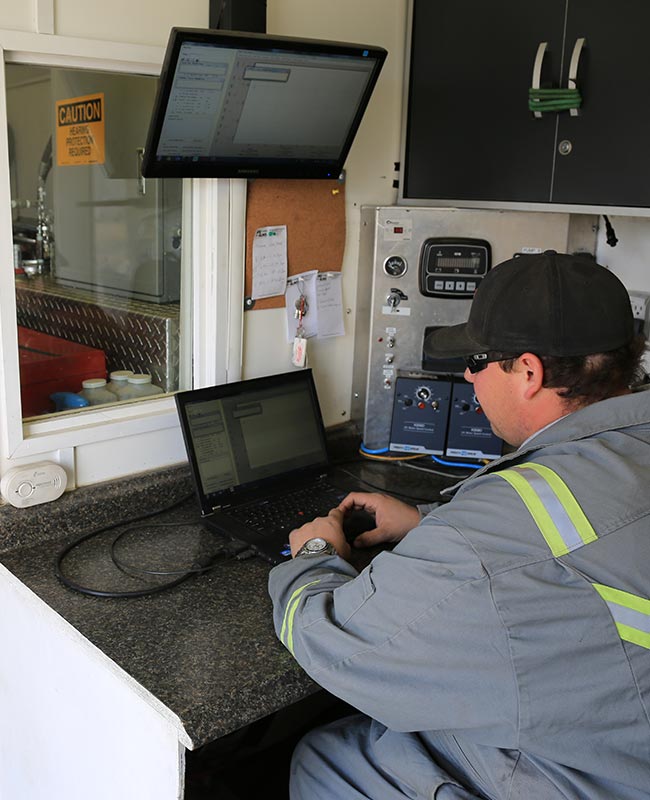Water Injectivity / Mobility Test
BGES’ tests are ideal for optimizing production or troubleshooting bottlenecks.
This type of tests can help obtain a reliable description of the reservoir water permeability, the initial reservoir pressure and the reservoir’s heterogeneities (layering, fractures, etc.) When multiple wells and/or multiple test intervals are used, a series of test can be designed to detect vertical and/or horizontal communication.
Steady and low-rate injection of test fluid is critical to the success of this type of tests. It is achieved using our unique, low-rate DCS-controlled injection units. To ensure the accuracy and quality of data obtained, multiple points of high-precision measurements are taken at the wellhead and downhole with backups.
Our deliverable includes a comprehensive report with detailed analyses.
Applications
Features & Benefits
Operations
Integration of Services
From core preservation, geotechnical lab testing, cased-hole logging, reservoir and caprock injection testing, data analyses, project management, regulatory reporting, to computer simulation and numerical modelling, our comprehensive and customizable service model offers maximum flexibility for our clients.

